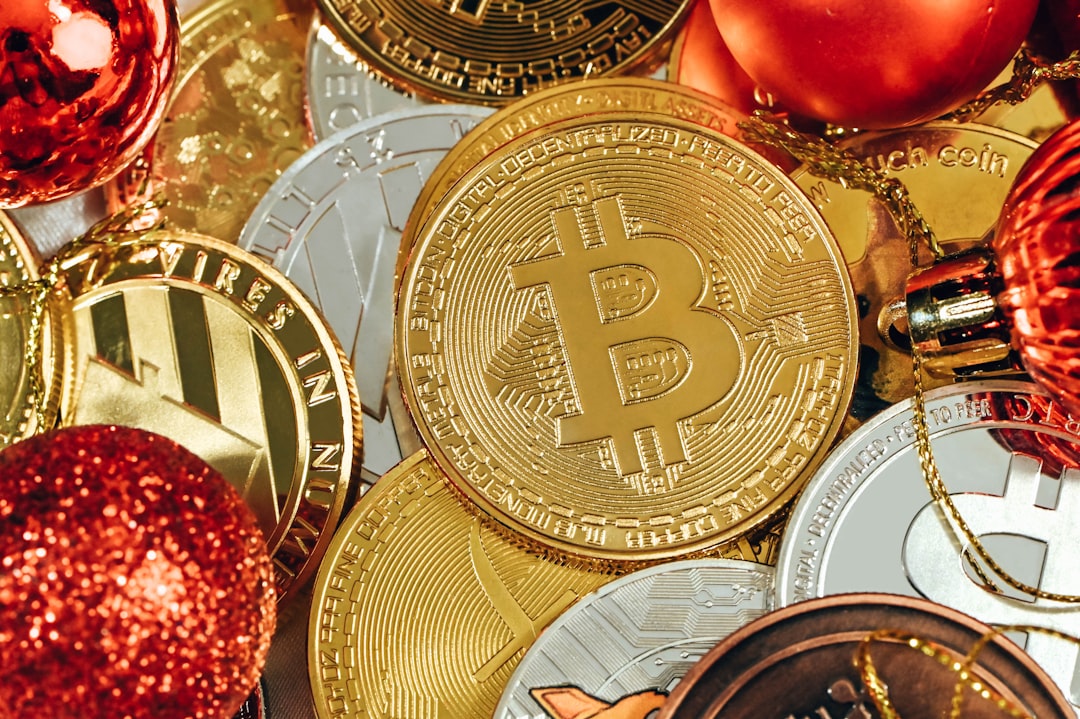
# Hong Kong Virtual Asset Defense War! How can investors avoid the next JPEX trap under the heavy fist of regulation?
---
**October 31, 2022** At the opening ceremony of Hong Kong FinTech Week, a "Policy Declaration on Virtual Asset Development in Hong Kong" shook the market. The declaration clearly declared Hong Kong's determination to embrace Web 3.0 and vowed to build an international virtual asset center. However, with the spate of incidents such as the FTX crash and the siege of Coin, regulatory trust has plummeted. How can Hong Kong walk the tightrope between innovation and protection? What mechanisms are in place to protect investors' wallets?
### I. From "Zero Regulation" to "Strong Regulation": The Evolution of Regulation in Hong Kong
Hong Kong's regulation of virtual assets is not a quick fix, but the key twists and turns can be clearly traced:
* **Icebreaker in 2018:** The Securities and Futures Commission (SFC) introduced for the first time a **compulsory licensing regime** for "virtual asset portfolio management", requiring funds managing virtual assets in excess of a total value of 10% to be licensed.
* **Key Expansion in 2019:** SFC introduces the Opt-in Regime, which covers VASPs that do not hold a traditional license but wish to operate an exchange. In the same year, it also published a Position Paper on the Regulation of Virtual Asset Trading Platforms (VATPs), which establishes a licensing framework for platforms (**professional investors only**).
* **Heavyweight legislation in 2022:** LegCo passes the Anti-Money Laundering and Counter-Terrorist Financing (Amendment) Ordinance 2022,** adding a new mandatory license for VASPs** to regulate all virtual asset exchanges operating in Hong Kong or marketing to Hong Kong people, regardless of whether the tokens traded are securities-based.
* **Full implementation in 2023:** On June 1, the SFC's "Guidelines on Virtual Asset Trading Platforms" came into effect,** and the dual licensing regime (Securities and Futures Ordinance + Anti-Money Laundering Ordinance) was formally implemented**. Platforms are required to apply for both No. 1 (Securities Trading) and No. 7 (Automated Trading Services) licenses and VASP license.
* **Stable Currency Regulation Takes Off in 2024:** The HKMA (HKMA) announced the "Sandbox" list of stable currency issuers, paving the way for the implementation of the **Stable Currency Compulsory Licensing Regime** in 2024/25.
### II. Core Weapons of Investor Protection: Licensing Regime and "Professional Investor" Thresholds
The Hong Kong government's core strategy for investor protection is embodied in the stringent **market access** and **client tiering**:
1. **VASP License: The First Barrier to the Moat** **Who Must Be Licensed?
* **Who must be licensed? ** All VASPs operating in Hong Kong, or "actively marketing" their services to the Hong Kong public.
* What are the rules? ** The application thresholds are extremely high: sufficient business in Hong Kong, at least two Responsible Officers (ROs), compliance with the Fit and Proper test,** a minimum paid-up capital of HK$5 million**, strict segregation of client assets (private keys must be kept in Hong Kong), and comprehensive anti-money laundering (AML) and counter-terrorist fundraising (CFT) measures.
* **Hard reality:** As of July 2024, only **OSL Digital Securities Limited** and **Hash Blockchain Limited** (Class 1 and 7 licenses only) are officially licensed by the SFC. giants such as OKX, Gate.io and others have already withdrawn from the Hong Kong market.
2. **"Professional Investors": The Umbrella and Controversy of the Moment** **Hard Rules:** **Hash Blockchain Limited** (Class 7 license only) is officially licensed by the SFC.
* **Hard and fast rule:** Under the current system, **licensed trading platforms can only provide services to "professional investors "**. The thresholds for "professional investors" are extremely high (individuals need to have a portfolio of HK$8 million; institutions need to have total assets of HK$40 million or a portfolio of HK$8 million).
**Retail Prohibition:** Spot virtual asset products (e.g. direct trading of Bitcoin, Ether)** are still not allowed for retail investors**. The only exception: a few SFC-authorized overseas virtual asset **derivatives** (e.g. futures ETFs) can be sold to retail investors.
3. **Distribution: Layers of controls** **SFC and HKMA have worked together to develop the distribution chain.
* The SFC's joint circular with the HKMA confirms that virtual asset products are "complex products".
* Intermediaries are required to: **(a) ensure suitability** (assess client risk appetite and product fit); **(b) provide specific risk disclosures**; and **(c) conduct product due diligence** when distributing.
* When distributing to "professional investors", intermediation** should only be done in the best interest of the client and with training** if the client does not have sufficient knowledge.
### 3. High pressure line: heavy fines for touching it! A painful lesson from the JPEX incident!
Regulation is not a paper tiger. **The cost of operating without a license or violating the law is staggering:**
* **Criminal felony:** Providing virtual asset services without a license is punishable by a fine of up to **HK$5 million and imprisonment for up to 7 years**. Making false statements in a license application is punishable by a fine of up to $1 million and 2 years in prison**.
* **JPEX Bloodbath: ** In September 2023, JPEX was revealed to be **unlicensed**, but it advertised itself as a "licensed platform" through online KOLs and OTC stores, and even offered **high-interest traps** with an annualized rate of 20%. This is a direct violation of the SFC ban (licensed platforms** are strictly prohibited from using client assets to generate interest for clients**). The incident led to over 2,500 reports**, involving over HK$1.5 billion**, multiple arrests and the paralysis of the platform. This case has become the most serious fraud case in Hong Kong's crypto history,** exposing the loopholes in OTC regulation and the risks of retail investors' blindness**.
### 4. Future Battle: Regulatory Movements and Investor Self-Protection
The JPEX storm prompted regulation to accelerate the leakage:
* **OTC regulation is on the horizon:** The Financial Services and the Treasury Bureau (FSTB) has launched a consultation on the introduction of a **virtual asset over-the-counter (OTC) licensing system**. In the future, all OTCs (physical or online) offering virtual asset spot trading services will need to be licensed, and are strictly prohibited from exchanging virtual assets or taking custody of client assets.
* * * Steady liberalization? ** In the face of a "wave" of exchanges withdrawing from Hong Kong and industry criticism that the thresholds are too high, the regulators (SFC, HKMA) have indicated that they will "**review and adjust their policies in a timely manner in light of market dynamics**", prompting speculation that there may be an appropriate degree of liberalization (e.g. retail access). However, **investor protection remains the bottom line**.
**How can investors protect themselves? Remember the three cardinal rules:**
1. **Check your license! Check the cards! Check the license! ** Be sure to check whether the platform is **licensed** in the "List of Virtual Asset Trading Platforms" on SFC's official website ([https://www.sfc.hk/en/Welcome-to-the-Fintech-Contact-Point/Virtual-assets/Virtual-asset- trading-platforms-operators/Lists-of-virtual-asset-trading-platforms](https://www.sfc.hk/en/Welcome-to-the-Fintech-Contact-Point/ virtual-assets/virtual-asset-trading-platforms-operators/lists-of-virtual-asset-trading-platforms)). Be wary of any platform that has "applied" for a license but has not been formally approved.
2. **Be wary of the "high return" trap! ** Stay away from products that promise unrealistic high returns (e.g. JPEX's 20% annualized interest rate) that are far beyond the market level. Licensed platforms** are strictly prohibited from soliciting customers**. 3.
3. **Recognize the "professional investor" restriction! ** If you are not a "professional investor" who meets the $8 million threshold, you should not attempt to directly trade spot virtual assets** on a licensed platform in Hong Kong through any channel at this stage**. Compliance channels are currently limited to **approved virtual asset derivatives (e.g. futures ETFs)**.
---
Hong Kong's regulatory blueprint for virtual assets is a delicate balancing act between the ambitions of the "Wall Street of the East" and the safety of "investors' hard-earned money". The license is a shield and a threshold; professional investors are the firewall at this stage and may be the touchstone for the future. In the wave of Web3, Hong Kong has chosen the path of "regulatory protection for innovation". For investors, keeping abreast of policies, recognizing compliance, and staying away from temptation are the keys to survival in this battle for asset protection. Let's hope the next JPEX never happens again.
Disclaimer: The contents of this article are for informational purposes only and should not be construed as any form of promotion, investment advice, or invitation, solicitation or recommendation of any investment product.
The contents of this article have been reprinted.offensiveIf there is anything wrong, please contact us and we will remove it immediately, thank you.
Readers should make their own assessment and seek professional advice.





